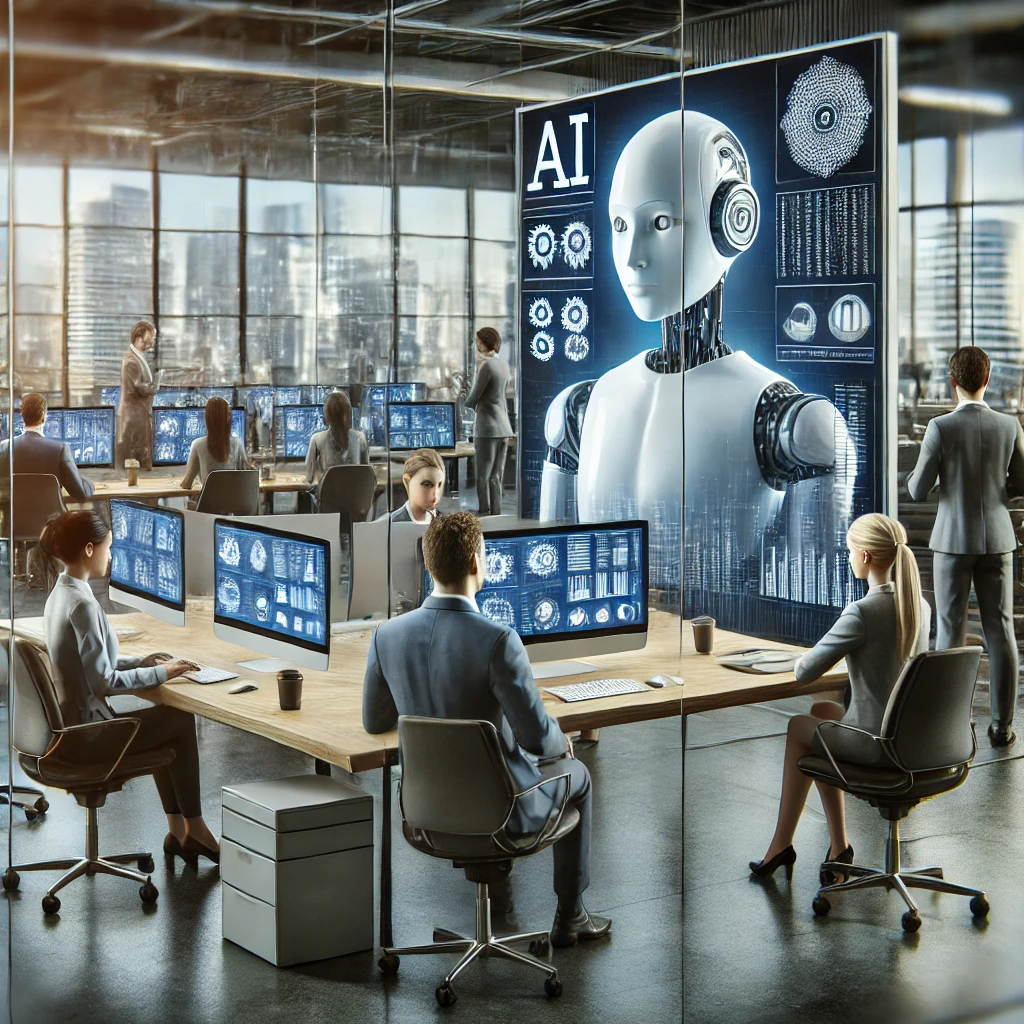Artificial Intelligence (AI) is reshaping the business landscape, bringing transformative changes to operations and management. From automating routine tasks to enhancing decision-making processes, AI technologies are driving efficiency, innovation, and competitiveness in various industries.
Automating Routine Tasks
One of the most significant impacts of AI is its ability to automate repetitive and mundane tasks. By delegating these tasks to AI systems, businesses can save time, reduce errors, and allow employees to focus on more strategic activities.
- Data Entry and Processing: AI-powered tools can quickly and accurately handle data entry, processing large volumes of information in a fraction of the time it would take a human.
- Customer Service: Chatbots and virtual assistants provide instant customer support, handling common queries and issues. This not only improves response times but also frees up human agents to deal with more complex problems.
- Inventory Management: AI algorithms can monitor inventory levels, predict demand, and automate reordering processes, ensuring optimal stock levels and reducing the risk of overstocking or stockouts.
Enhancing Decision-Making
AI enhances decision-making by providing data-driven insights and predictive analytics. Businesses can leverage these capabilities to make more informed and accurate decisions.
- Predictive Analytics: AI models analyze historical data to forecast future trends and outcomes. This is particularly useful in areas such as sales forecasting, financial planning, and risk management.
- Personalized Marketing: AI can segment customers based on their behavior and preferences, enabling personalized marketing campaigns that resonate with individual customers and increase conversion rates.
- Strategic Planning: By analyzing market trends, competitor actions, and internal performance data, AI helps businesses develop strategic plans that are aligned with current and future market conditions.
Improving Operational Efficiency
AI technologies streamline business processes, improving operational efficiency and productivity across various functions.
- Supply Chain Optimization: AI optimizes supply chain operations by predicting demand, identifying inefficiencies, and suggesting improvements. This leads to faster delivery times, reduced costs, and better resource utilization.
- Quality Control: AI systems can monitor and analyze production processes in real-time, identifying defects and deviations from standards. This ensures consistent product quality and reduces waste.
- Workforce Management: AI assists in workforce planning by predicting staffing needs, scheduling shifts, and managing workloads. This results in better resource allocation and improved employee satisfaction.
Facilitating Innovation
AI drives innovation by enabling businesses to develop new products, services, and business models.
- Product Development: AI accelerates product development by analyzing market needs, predicting trends, and optimizing design processes. This leads to faster time-to-market and products that better meet customer demands.
- Service Delivery: AI-powered platforms enhance service delivery by providing personalized experiences, improving customer engagement, and ensuring seamless interactions across multiple channels.
- Business Models: AI enables the creation of innovative business models, such as subscription services, on-demand offerings, and personalized recommendations, which can open new revenue streams and market opportunities.
Ethical and Practical Considerations
As businesses increasingly rely on AI, it is essential to address ethical and practical considerations.
- Data Privacy: Ensuring the privacy and security of customer data is paramount. Businesses must implement robust data protection measures and comply with relevant regulations.
- Bias and Fairness: AI systems can inadvertently perpetuate biases present in training data. It is crucial to design AI models that are fair, transparent, and inclusive.
- Job Displacement: While AI can automate tasks, it may also lead to job displacement. Businesses should invest in retraining and upskilling employees to help them adapt to new roles and responsibilities.
Conclusion
AI is revolutionizing business operations and management, driving efficiency, innovation, and competitive advantage. By automating routine tasks, enhancing decision-making, and facilitating innovation, AI empowers businesses to thrive in an increasingly complex and dynamic market. However, it is essential to address ethical and practical challenges to ensure the responsible and equitable use of AI technologies.




